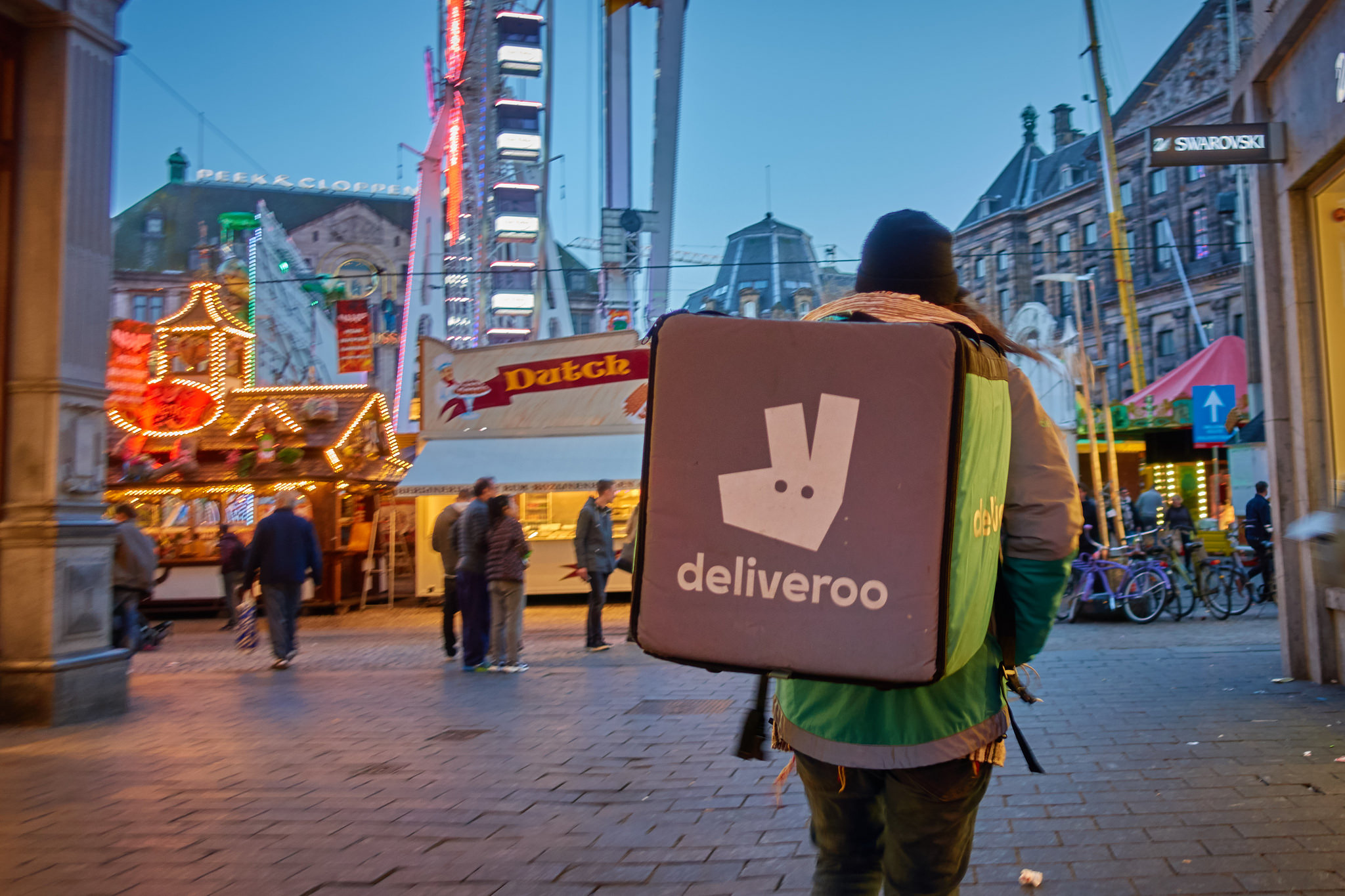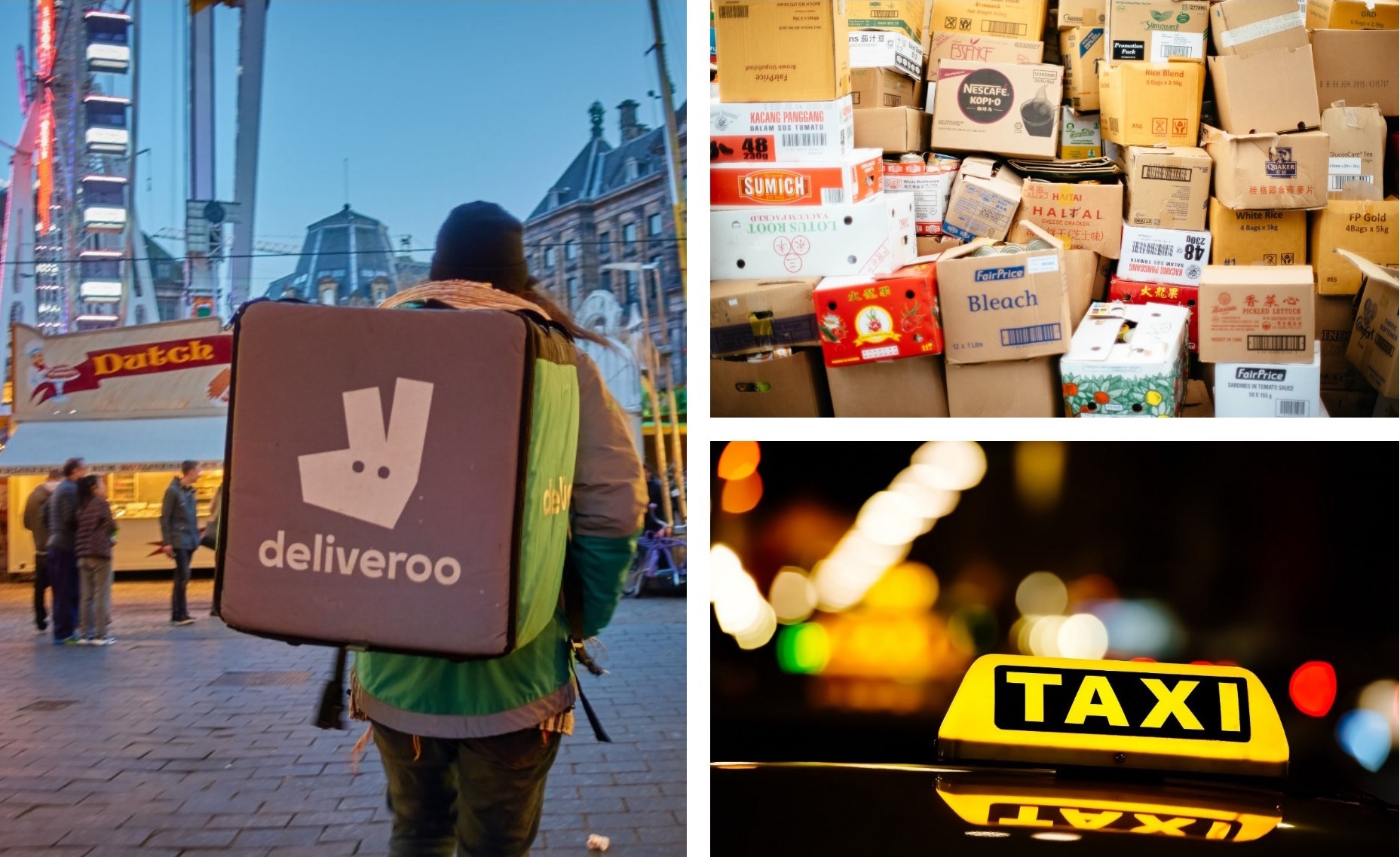This week an employment tribunal in Leeds ruled that 65 Hermes couriers are workers, not self-employed, as the delivery company had claimed.
It might sound like a simple case of semantics, but this will make a big difference to people’s lives. Workers, unlike the self-employed, are entitled to substantially more rights, like holiday pay and the national minimum wage.
And it’s not the only case. The past few months have seen a wave of rulings that could change the landscape of gig economy rights forever. So, what exactly is going on?
Back Up! What Is The Gig-Economy?
 Image credit: Thought Catalog /Unsplash
Image credit: Thought Catalog /Unsplash
The term ‘gig economy’ refers to a system whereby people who work for a company are mostly self-employed, or on zero hours contracts, rather than regular employees on permanent contracts.
A number of big companies such as Uber and Deliveroo base their business model on the flexibility this allows. Since people are not officially employees, firms can use them for longer hours when there is more work available, and then cut their hours during quieter times of the year. It also means that these companies have a wider network of potential workers always available.
In theory, the system can also be convenient for the workers. They can decide if and when they want to work, and do it for more than one company at a time. But in practice, it often means that even though they only work for one company, wear its uniform and agree to work a minimum number of hours for that company, some established workers’ rights, such as holiday pay and protection against unfair dismissal, do not apply to them.
Estimates of the number of people in the UK who work in the gig economy vary from 1.1 million to 2.8 million: they are mostly couriers, drivers and people who deliver food. Uber alone says that in London they have 45,000 registered drivers.
From a legal perspective, it’s difficult to establish whether these companies are doing anything wrong. On one hand, gig economy workers are ‘their own bosses’, and guaranteeing their rights is not a duty of the companies that hire them.
But on the other, workers and organisations argue that they are employees de facto, even if not in name, and that their rights should be regulated accordingly.
Are Things Changing?

Image Credit: Ryan Adams / HomeDust
Until now, gig-economy companies have been quite resistant to change. Their business model is often based on offering a technology service (usually an app) that connects customers with people who can do the job. This is especially the case for Uber, which for years presented itself as a digital company and not a transport one.
There was a constant threat of a fine. They had to deliver the parcels to tight slots and the pressure to get them done was huge. He was putting the company before his own health.
Ruth Lane, Widow of Don
However, the gig economy can have dire consequences. In January, DPD courier Don Lane died of diabetes after being fined by the company for leaving his turn uncovered due to a medical appointment. He was officially self-employed and therefore did not have sick pay. Afraid of being fined again or of losing his job, he then worked through illness at Christmas, collapsed and died. He had been working for the company for 19 years.
DPD then offered its 6,000 drivers a new contract that included holiday and sick pay. Their change of attitude has so far been an exception, but a series of recent sentences could be a turning point for workers’ rights in the gig economy.
The Hermes sentence is, in fact, not an isolated one. Two weeks ago, the UK Supreme Court ruled that a plumber was actually a worker for Pimlico Plumbers, and was therefore entitled to employment rights. In May, a similar ruling involved Addison Lee and its couriers.
The notion that Uber in London is a mosaic of 30,000 small businesses linked by a common ‘platform’ is to our minds faintly ridiculous.
Judges Ruling on Uber in 2016
Something may be changing for Deliveroo as well. In November last year, the Central Arbitration Committee established that Deliveroo’s delivery staff had to be considered self-employed. But, earlier this month, the Independent Workers Union of Great Britain (IWGB) was given the go-ahead to challenge the sentence at the High Court. The union is expected to launch the review by the end of the year.
Uber was at the centre of a similar case back in 2016. Again, the sentence established that two drivers were workers and not self-employed, and rejected the firm’s counterarguments. “The notion that Uber in London is a mosaic of 30,000 small businesses linked by a common ‘platform’ is to our minds faintly ridiculous,” wrote the judges in the sentence.
What Next?

Image Credit: Eugenuity/Flickr
Sentences ruling in favour of workers are all good, but, obviously, not everyone is going to sue the company they are (unofficially) working for. Megan Brown, Chair of the IWGB’s courier and logistics branch, believes that a more systematic intervention is necessary.
“This is a fantastic – yet completely unsurprising – victory for the couriers,” she told RightsInfo, commenting on the Hermes sentence. “It has been proven again and again that the so-called ‘gig-economy’ is ridden with sham contracts written to deprive workers of basic employment rights.”
These Hermes couriers will celebrate their victory today, but what about the thousands of workers that are working in these exploitative conditions?
Megan Brown, IWGB
“These Hermes couriers will celebrate their victory today, but what about the other thousands of workers that are working in these exploitative conditions? And if Hermes appeals this decision how long will it take for these workers to see justice? The lack of enforcement of the laws that exist to protect workers means employers have little incentive to respect employment rights.”
But could further change, away from the courts, be on the table? Last year a review into modern working practices, commissioned by Prime Minister Theresa May, was published by Matthew Taylor. In it, there was a push for “fair and decent work for all”, including those within the gig economy.
Following this, the Government announced plans to revise workers’ rights in February, promising stronger contracts with holiday and sick pay. However, as of yet, there’s been no further action, and with Brexit clogging up Parliament for the time being, it could be a while before we see any substantial changes.







